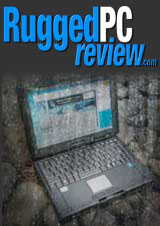« Rocky (not Balboa) has left the building | Main | Mobile Operating Systems Crossroad? »
November 30, 2016
Sharp, clear web images
RuggedPCReview readers who view our site on a modern tablet, smartphone or high resolution monitor have probably noticed that many images on RuggedPCReview.com are noticeably crisper and sharper than those on the vast majority of websites. Why is that? It's because earlier in 2016 we started serving images in both standard and high resolution. That way, if your browser automatically detects that you're viewing a page on a device with a high resolution display, it'll serve a high resolution image. If you're viewing it on a standard display, it'll load a standard resolution picture. Let me explain.
While high and higher resolution is a huge deal in consumer tech and advertising (think 4k TV, megapixels in cameras, and smartphone resolution), all that ginormous resolution is totally useless when creating images for websites. For example, a 4:3 aspect ratio picture from a 12-megapixel smartphone camera has 4000 x 3000 pixels. That's more than fit on a giant 4K TV screen with its 3840 x 2160 pixels, let alone a "high definition" laptop screen with its measly 1920 x 1080 pixels. Now add to that the fact that most pictures on web pages are quite small. And that web pages need to load as quickly as possible. And that the image resolution standard for web page pictures really hasn't changed in almost a quarter of a century (it's still 72dpi or 96dpi).
What that means is that while cameras and TVs, and phones and even some monitors have wonderfully high resolution today, the pictures we're viewing on the vast majority of websites are presented in dismally low resolution. They are fuzzy and grainy and really a bit embarrassing (though one might argue they fit right in with those terrible Wordpress layouts so many of todays' websites use).
So what can be done? Well, we code our web content so that folks who view our site on a high-resolution device will get high-resolution pictures. Easy as that. Or rather, not quite as easy as that. Because while at RuggedPCReview.com we found a way to serve high-resolution pictures without slowing down page loading, figuring out how to do that wasn't easy. And it's extra work to generate, and code for, multiple versions of every image. But we figured our viewers are worth the extra effort, as are our sponsors, and the terrific technology invested in all that rugged technology we report on, analyze, and test.
So if you've noticed that RuggedPCReview.com is different not only due to the total absence of annoying pop-ups, lame click bait, and ads you must read before you get to the site, but also in the very sharp and clear images we present, you're viewing the site on a contemporary high-res display, and we made sure it's the best possible viewing experience for you.
But aren't there still some older, fuzzy images on the site? Yes, old content remains as it was. But any new content is now created with multi-resolution pictures, and we're hard at work updating old imagery as well.
Posted by conradb212 at November 30, 2016 4:27 PM
















